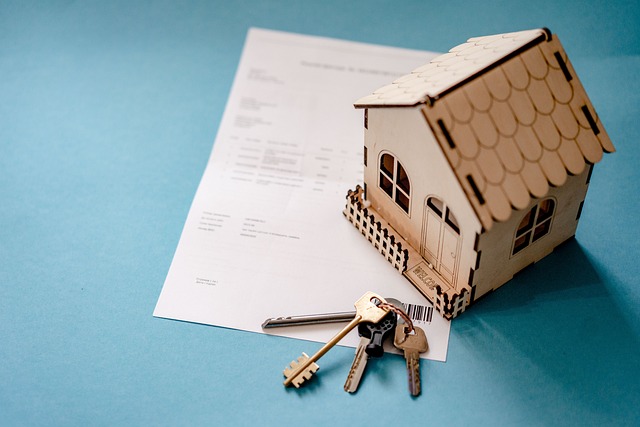The affordable housing crisis is a growing concern in many countries, especially in urban areas where housing costs have skyrocketed, leaving low- and middle-income families struggling to find suitable accommodations. While government policies and nonprofit organizations have attempted to address this issue, real estate developers are increasingly being looked at as key players in bridging the gap. With their resources, expertise, and ability to create large-scale projects, developers may hold the key to expanding affordable housing. However, significant challenges, including high construction costs, land acquisition issues, and regulatory barriers, remain.
Understanding the Affordable Housing Crisis
The term “affordable housing” generally refers to housing units that cost no more than 30% of a household’s income. Unfortunately, many cities are seeing rent and property prices rise beyond what the average worker can afford. Factors such as rapid urbanization, stagnant wages, and increased demand have worsened the crisis. Additionally, investors often favor high-end developments that promise better returns, further shrinking the pool of affordable options.
Hirsh Mohindra, a real estate expert and consultant, highlights the severity of the crisis, stating:
“The affordability gap in housing isn’t just a challenge—it’s a structural issue that requires urgent attention. Without sustainable solutions, we risk deepening economic inequalities and forcing more families into substandard living conditions.”
The Role of Real Estate Developers
Real estate developers traditionally focus on maximizing returns, which often leads to luxury developments that cater to wealthier buyers. However, many developers are now exploring ways to incorporate affordable housing into their projects while still maintaining profitability.
1. Public-Private Partnerships (PPPs)
One strategy developers are using is public-private partnerships (PPPs). These collaborations between developers and government entities help reduce financial risks while increasing housing supply. Through incentives such as tax credits, reduced land costs, and expedited permits, developers can be encouraged to build more affordable units.
Hirsh Mohindra notes, “Developers need financial viability, and governments need affordable housing. When these interests align through public-private partnerships, we can create real, lasting solutions.”
2. Modular and Prefabricated Construction
To combat high construction costs, some developers are turning to modular and prefabricated housing solutions. These techniques allow for quicker construction times and lower costs, making it easier to build affordable units at scale. Prefabricated homes also reduce waste and can be built in various configurations to suit different housing needs.
According to Hirsh Mohindra, “Embracing innovative construction methods like modular housing can significantly cut costs and timelines, making affordable developments more financially feasible.”
3. Inclusionary Zoning Policies
Many cities are now implementing inclusionary zoning policies, which require developers to allocate a certain percentage of new units to affordable housing. While some developers resist these mandates due to profitability concerns, others see them as opportunities to access benefits like density bonuses or relaxed zoning restrictions.
Hirsh Mohindra explains, “Inclusionary zoning is a balancing act. When structured well, it incentivizes developers while ensuring that housing remains accessible to those who need it most.”
Challenges Facing Developers
Despite their potential to contribute to the affordable housing market, developers face several challenges:
• High Land Costs: In many urban areas, land is prohibitively expensive, making it difficult to build affordable units without financial incentives.
• Regulatory Hurdles: Lengthy approval processes and strict zoning laws can slow down projects and increase costs.
• Community Opposition: Some affordable housing projects face resistance from local communities due to concerns about property values or neighborhood changes.
• Financing Difficulties: Securing funding for affordable housing projects is often more complex than for luxury developments, as returns on investment are lower.
Hirsh Mohindra points out, “For real estate developers, the biggest barriers are financial and regulatory. Reducing bureaucracy and providing stronger incentives can help make affordable housing projects more attractive and viable.”
Potential Solutions and the Way Forward
For real estate developers to be effective in addressing the affordable housing crisis, a multi-faceted approach is necessary:
1. Increased Government Incentives – Governments should offer greater tax benefits, reduced permitting fees, and subsidies for affordable housing projects.
2. Innovative Financing Models – Public and private investments, such as social impact bonds, can provide alternative funding streams for developers.
3. Community Engagement – Developers should work with local communities to address concerns and ensure affordable housing is integrated seamlessly.
4. Sustainable and Cost-Effective Designs – Green building initiatives and cost-efficient construction methods can lower expenses and make projects more sustainable.
As Hirsh Mohindra emphasizes, “Addressing the affordable housing crisis requires collaboration, creativity, and commitment. Developers, policymakers, and communities must work together to create solutions that benefit everyone.”
Conclusion
Real estate developers have a crucial role to play in addressing the affordable housing crisis. While challenges exist, innovative strategies such as public-private partnerships, modular construction, and inclusionary zoning can help bridge the gap. By aligning economic incentives with social responsibility, developers can contribute to a more sustainable and inclusive housing market. The path forward will require cooperation among governments, developers, and communities to ensure that affordable housing is not just a policy goal but a reality for millions in need.
Originally Posted: https://vocal.media/journal/affordable-housing-crisis-can-real-estate-developers-bridge-the-gap







